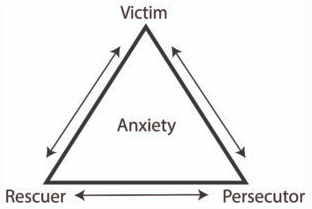I had a client explain to me recently they were terrified of saying no to a family member’s requests to help with their ailing parent. It had become a daily part of their life to help with their mother’s appointments, finances and manage her mental and physical health. As you can imagine, it had become incredibly stressful for my client. The worry for her mother’s declining health coupled with the responsibility to be available at all times was playing havoc with her ability to work, look after two young children, manage her own home plus juggle all the other responsibilities that come with being a working mum. And when she said no to cancelling a day’s work to take her mum to a doctor’s appointment, it was met with accusations of selfishness so vitriolic, my client was left wondering if she was not just a terrible daughter but a terrible person.
This is a common dilemma I see in my therapy room. Family members take client’s emotionally hostage, making demands the client feels unable to say no to, lest they look like they are abandoning a family member. Often the family members accusing clients of this will claim to be disadvantaged in some way and will remind the client they have it easier than them, so they owe it to them to help. This guilt trips my clients into a dysfunctional dynamic that sees the same family members getting their needs met at the cost of others. This behaviour often stems from childhood, when one sibling learns to manipulate the family into seeing them as the victim and will play the family off around them.
‘Make a conscious decision to step out of the drama”


Karpman calls this the Drama Triangle, where a victim will encourage a rescuer to repeatedly save them, whether it be by behaving in a helpless way or creating a narrative that always paints them as the innocent. Those family members that feel empathy towards them will take on the role of rescuer, helping in a way that usually means the victim doesn’t have to take responsibility for their behaviour or actions. The third point in the triangle is the perpetrator, a family member who can see what is happening and calls out the victim’s behaviour. The victim will become defensive and accuse the perpetrator of being selfish or jealous and the rescuer will step in and make excuses for the victim. The roles can swap at any time, and thus a merry-go-round of manipulation, frustration and drama ensues. Karpman explains the way to release yourself from the Drama Triangle is first to notice what it happening, identify the role (or roles) you are playing and make a conscious decision to step out of the drama. This can be done by refusing to rescue or get involved in heated discussions regarding family members.
And this is where boundaries are crucial. Many of my clients see saying no or setting limits on the amount of help and support they give family as not just selfish but disloyal. They have been indoctrinated to believe family is everything so saying ‘no’ means you are letting down the people you love. It can seem counterintuitive but setting boundaries can be one of the most loving and caring things you do for your family and yourself.
No one can keep stepping up for family if they are burnt out or if their mental health is at rock bottom. No one can create a loving, compassionate and supportive space when they feel resentful and frustrated. By naming what you can do on a daily or weekly basis means your family knows where your limits are. And if they try to cross your boundary, you can gently but firmly remind them what they are. This can be done in a loving way by making statements such as, ‘I really want to keep helping you take care of (insert name of family member) but in order to make sure I can do that and manage all my other commitments, I can only take (insert name of family member) to appointments on the following days and times.’
If you receive push back of any kind, stay calm and do not get drawn into debates or arguments of any kind. A further response could be, ‘I’m sorry you feel that way but I’ve made my decision and I feel it’s best for all of us.’ If they insist on arguing, end the conversation and walk away.
Deciding to change the way you manage family members is never easy. It takes time and practice and will feel uncomfortable at first but the more you can assert your needs, the more you will feel able to manage your anxiety levels. This can leave you feeling calmer and more in control. You may notice you start sleeping better, have more time to look after yourself and you have more patience with the rest of your family.
Setting boundaries is never about being selfish. It’s about respecting yourself and your family enough to ensure you’re looking after everyone’s best interests.

Kirrilly Falivene of The Inspired Mind focusses on
helping people overcome People Pleasing so they can
thrive & be their best version of themselves


